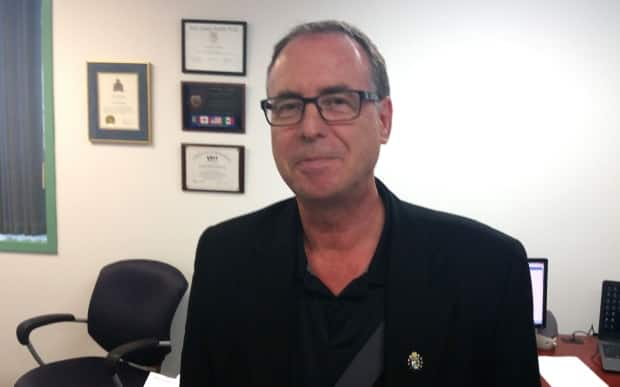Revoking driver's licences due to dementia a delicate process, says P.E.I. Highway Safety

P.E.I. has a number of systems in place to detect people unsafe to drive because of dementia, and is not planning on introducing some of the heavier measures in place in other provinces.
In Ontario, drivers over the age of 80 are screened every two years. Director of Highway Safety Graham Miner doesn't think that's necessary on the Island.
He noted doctors are required to report concerns about driving skills, and that people at risk of dementia are seeing their doctor regularly. Police also play a role, he said.
"Enforcement agencies that may stop a vehicle, maybe suspected of impaired driving, and it may turn out to be an individual that may have driving skill type issues," Miner told Island Morning host Laura Chapin.
"When that happens we may refer them to have a medical done."

That medical may include a driving test, he said, and it doesn't stop there. Drivers could end up with a restricted licence which will require being retested every three to six months, and possibly only driving in certain places at certain times, not driving at night or on the highway.
Between 400 and 500 drivers on P.E.I. are currently operating under restrictions, Miner said, but he couldn't say how many of those are seniors.
Testing could also result in revoking of the licence, which Miner estimates happens to about 20 to 30 seniors each year.
Professional referrals only
While highway safety may receive referrals from medical professionals or police, it will not take referrals from family members or friends.
"What we will do, for example, if you were calling about your grandfather, we would say contact your family doctor and see if they'll make a referral," said Miner.
There are two reasons for this, he said. First of all there is the issue of malicious intent. A person could be referred by a neighbour they are having a fight with, or a family member who is after a vehicle.
Secondly, limiting direct referrals protects family members.
'He would just go into a rage'
Losing your driver's licence is difficult, even traumatic, especially in a province such as P.E.I. where there are fewer options for getting around without a vehicle.
Geriatric psychiatrist Mark Rapoport, who with another doctor recently launched a website to help people navigate whether it is time to stop driving, said part of the motivation in creating the site was their understanding of what a difficult decision it is.
"We're told that it's almost worse than hearing one has dementia in the first place, to hear that you have to stop driving," said Rapaport.
Miner understands from personal experience the importance of keeping family members out of the picture.
"I've gone through this myself," he said.
"If the person knows a family member, especially when we're dealing with dementia, is the person that reported them, they'll never let you forget that. My dad, to his dying day, when he would have his moments when I'd go and visit him, and he would just go into a rage that I was the person that took his licence from him. He was a retired Baptist minister and I heard him use language that I didn't even know he knew."
Not having direct referrals can protect a family from that situation, said Miner.

 Yahoo Movies
Yahoo Movies 
